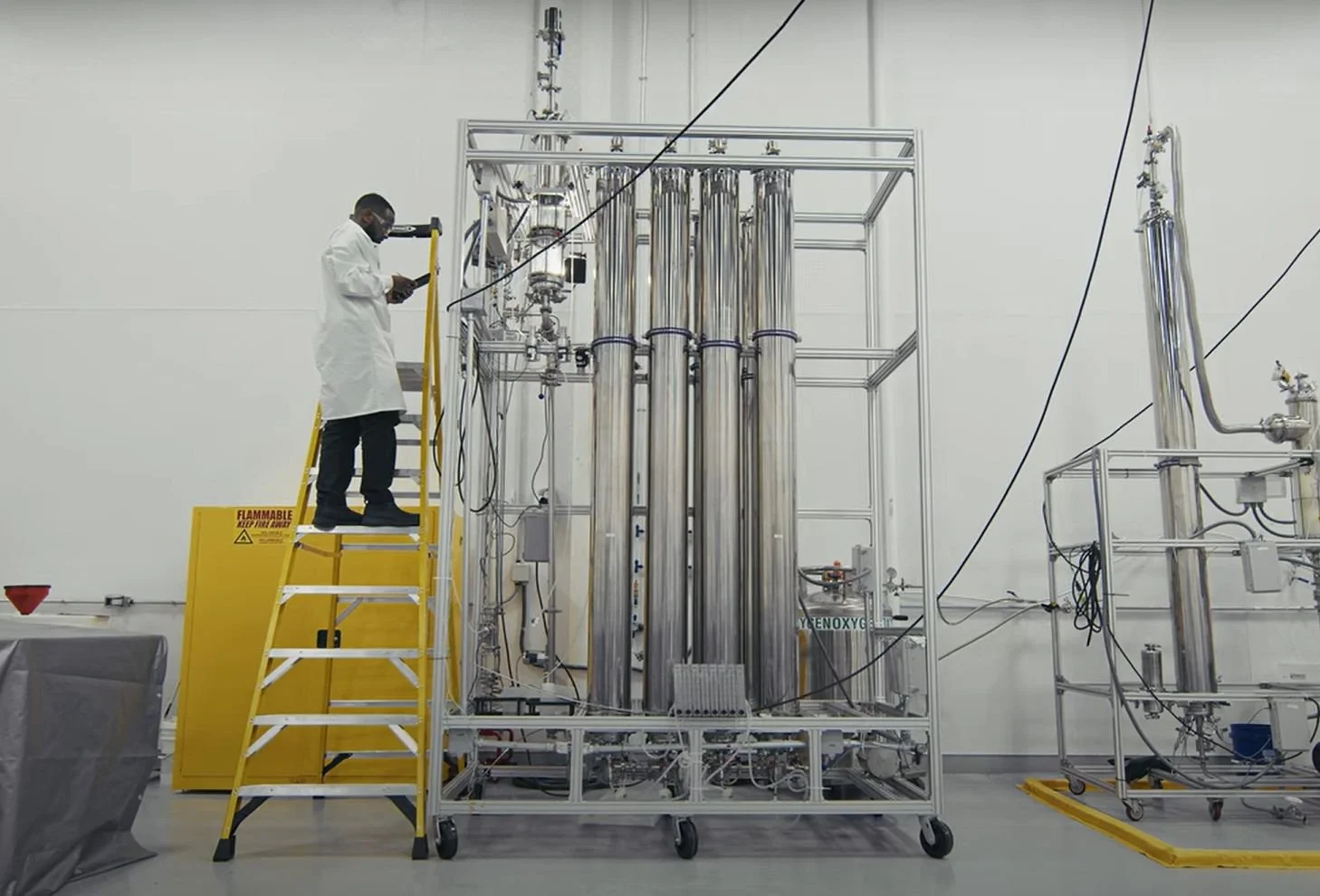Modular Biofilm Reactors to Convert Waste-Based Feedstocks to Vitamin A
Members: Capra Biosciences, Boston University, Next Rung Technology
Project dates: 2023 – 2025
This project advanced a modular bioreactor system that creates vitamin A through locally sourced, waste-based feedstocks. The modular system helps prevent contamination and automation issues, resulting in a continuous production process. The system is complemented by an advanced nanofiltration process that results in more efficient downstream processing. Overall, this modular scale-out process de-risks the large-scale production of new products through fermentation.
This project also incorporated first-of-their-kind tiny, floating wireless sensors from researchers at Boston University. These sensors transmit data in real time, allow for quality control and nutrient flow adjustments as needed. By advancing critical bioreactor automation, next-gen sensing, and novel continuous-flow separation methods, Capra scaled production from a 10mL laboratory prototype to a 400L pilot-scale system.
Vitamin A is used in many products, including retinol, dietary supplements, and more. Capra’s method uses significantly less water, reduces carbon emissions by as much as 80% compared to traditional retinol production, and significantly reduces capital costs. Capra Biosciences is also exploring using the modular bioreactor system for products like Aspirin and industrial lubricants.
This project also included a techno-economic analysis and environmental impact model from Next Rung Technology which produced promising results about the use of anaerobic digestion of waste-based feedstocks. Using local, waste-based feedstocks to make everyday products will minimize supply chain disruptions and create a more resilient domestic supply chain for needed goods.
Funding source: Schmidt Sciences
Related news:
Learn how bioreactors – the engines that power bioindustrial manufacturing – are getting an upgrade through this and other projects. Thanks to BioMADE projects funded through Schmidt Sciences, advancements in AI-guided control systems, vortex-powered mixing chambers, wireless sensors, and modular architectures will supercharge the future of bioindustrial manufacturing.

